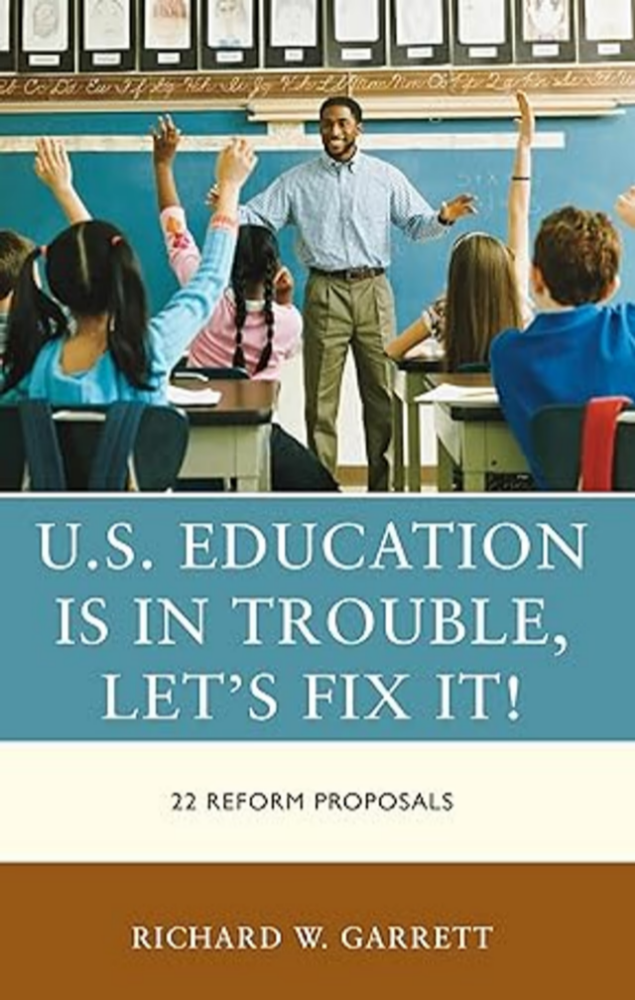Why I’m Leaving Education
I have taught in public schools for 15 years (7 as a Spanish teacher and 8 as a librarian). The schools were Title I middle and high schools in rural Kentucky, New York City, and Nashville (5th grade – 12th grade).
I have a Master’s degree in Library Media Science, I earned my National Board Certification as a Library Media Specialist, and I was voted Teacher of the Year by my colleagues in 2019.
Despite all of this, I’ve decided I need to leave the education field due to several factors that have built up over time.
1. Salary
Compared to my peers in other industries I feel that I have been dramatically underpaid for my entire career based on education, experience level, ability, and workload. The rising cost of living makes being a teacher unsustainable. The typical home price in Nashville is now around $420,000. I currently make $68,000. This includes a stipend of $4,000 a year for my national board certification and a rank increase of $6,000 for having my master’s degree. This is also after a dramatic restructuring of the pay scale that gave me an $11,000 a year raise this school year. Our salary steps have regularly been frozen due to budget issues while health insurance prices continue to increase, meaning that for several years in my career my take home pay was effectively reduced.
For most of my teaching career I have earned $45,000 – $50,000. Without assistance from my family I would not have been able to purchase a home and even then it was only because I was lucky enough to buy it seven years ago. Having children of my own has never felt like a fiscally responsible option given the cost of childcare and my salary.
Many of my colleagues work second jobs to make ends meet. It feels unreasonable for a professional to have to do this in order to live a middle class lifestyle. The majority of teachers I know are drowning in student loan debt. In 2018 it was estimated that to live “comfortably” in Nashville you would need to earn more than $80,000. The only option on the teacher pay scale (the new one with the dramatic salary raises) that would allow a teacher to earn that much is after 19 years of teaching with a PhD. When teachers talk about being underpaid we typically hear things like, “Well you knew that getting into it.” Why is that the response instead of looking critically at our priorities as a society and allowing our budget to reflect what we say we value?
2. Workload
In teaching if you are good you are rewarded with more work. There are limited options for upward mobility in the profession apart from becoming an administrator. It feels like the demands continue to increase and there is no relief in sight.
3. Disrespect
From Students: I had a student call a gay student a faggot in class and when I went to speak to him about it he called me a bitch. He was 12 years old.
I have been cussed out by students more times than I care to count. I have been called all variations of a bitch numerous times.
From Parents: I have been cussed out and criticized by parents more times than I care to count.
From Administrators – The solutions seem to be that we need to keep a positive attitude and work harder while ignoring the realities of the situation. This man was my vice principal at a school in Brooklyn before he was a principal at a school in the Bronx. The behavior described parallels my experiences and the experiences of other staff and students at my school. https://nypost.com/2012/05/15/furniture-fetish-principal-being-demoted-amid-new-allegations/
4. Education Polices and Politics
We are seeing more behavior issues this year than ever. It feels easy to blame the students or the families but as someone on the ground I see this differently. The majority of the people making decisions (and judgments) surrounding education policies are incredibly out of touch with the daily lives of most low/middle income Americans. Teachers are easy scapegoats for the ills of society when really what you are seeing in our schools right now is a mirror that reflects the problems in our society that many people want to sweep under the rug.
We were told as kids that if you work hard you will be successful and while hard work is one component of success it ignores underlying systemic issues that keep people in poverty and I believe that what we are seeing in public education now is that schools having been tasked with the impossible job of making up for the shortfalls of society and this issue is finally coming to a head.
Some of these issues include:
Money in Education and Prioritizing Corporate Interests and Greed
- Politicians prioritize making money over what is best for people. It feels like the societal contract has been broken. We give the government money in the form of taxes with the expectation that it will be used to provide resources and infrastructure for our society and improve people’s lives and instead it is being funneled to corporations and billionaires. Specifically in education, large corporations are making millions off of unnecessary tests and worthless programs that do not improve academic outcomes for students and result in an increased workload and stress for teachers, leading to burnout.
- As a country we are facing an enormous wealth disparity. I see this reflected in the schools I have worked in by parents who are exhausted from working multiple jobs in order to keep a roof over their heads. They have little time to parent when they are working all of the time. They are stressed and sad and fed up and are living paycheck to paycheck and moving regularly because they cannot afford to stay in the same area. This creates instability for students and increases mental health and behavioral issues. Many families are living in survival mode and are simply doing the best they can. This leaves little time/space/capacity for much else.
How Schools Are Funded
- Local property taxes affect school funding. In most areas of our country wealthier zip codes have better funded schools. This leads to discrepancies in the quality of education and the amount of support students receive at school.
Resource Allocation
With the money schools do receive (which is not enough for what we are responsible for doing) it is not being spent appropriately.
We need:
- Mental Health Support For Students
- More Vocational Training
- Better Teaching Training
Allowing a Vocal Minority to Drive Education Policy
- LGBTQ+ Discrimination – Serving the public means that you work for all people regardless of your personal beliefs. The number of laws being passed around the country that seek to discriminate against LGBTQ+ students is disheartening. These laws rile people up but they don’t help students. Numerous studies have shown that affirming students improves their mental health (reducing the rate of suicide specifically) and increases their academic outcomes.
- Critical Race Theory bans – I do not believe that anyone should be made to feel bad about themselves based on their race or that they are responsible for wrongs of the past. However I also refuse to teach lies or half truths about our country’s history. We need to see race for the complex social construct that it is before we will ever improve anything. I refuse to teach that slavery was anything other than people with power choosing to enslave a fellow human in order to exploit their labor for profit and that for many years it was the foundation of our economy in the United States. Racial discrimination did not end with the Civil Rights Act or Martin Luther King Jr.. Many of the CRT bans (some proposed, some already enacted) want us to gloss over many of the unpleasant parts of our country’s history because it makes people uncomfortable but to ignore it allows us to oversimplify many of the issues we are seeing in our country (and schools) today.
Teachers have tried sounding the alarm about what is happening and now we are exhausted and we are leaving.
I have enrolled in a vocational school for data analytics and hope to join the mass exodus of teachers leaving the profession within the next year. I feel frustrated, angry, and absolutely devastated to be leaving this profession but I don’t feel like there is a sustainable path to stay in this career.




